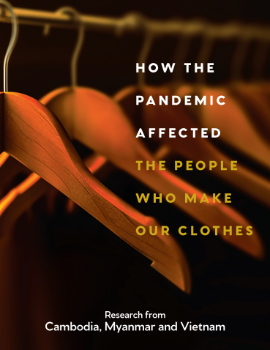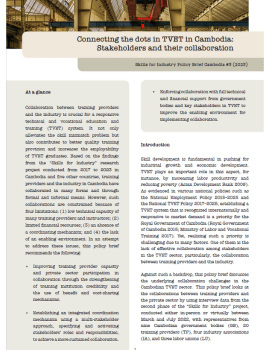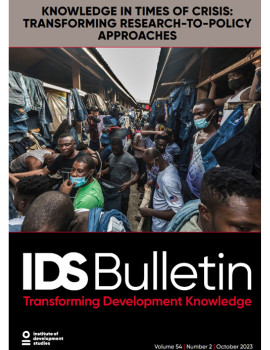
Abstract/Summary
The COVID-19 pandemic has disrupted most aspects of socioeconomic development, with the garment, manufacturing and textile industry being no exception. Decreased demand for orders has led to factory closures, and workers being suspended or laid off. The empirical evidence in this policy brief captures the impact of COVID-19 on the livelihoods of 2000 surveyed garment workers. The survey revealed that a majority of workers (80 percent) have faced income reductions, as well as reductions in food and non-food consumption. Respondents who experienced a lack of food (40 percent) borrowed food from others (20 percent). Notably, women have been disproportionally affected by this. Figures on access to government in-kind support (27 percent) are still low, and more than one-third of workers have not received any cash support from the government. The lack of skills training, and evidence of economic inactivity and job dynamics were also reported. Based on these findings, three policy recommendations were formed to ensure better implementation of social assistance programs targeted at garment workers, and contributing to an inclusive and resilient social assistance system in Cambodia: (1) the continuation of emergency assistance and the provision of welfare; (2) improved identification mechanisms, assistance implementation and delivery; and (3) increased awareness and provision of upskilling and reskilling training for garment workers.
This policy brief is published as a part of contributions for National Policy Forum: Cambodia's COVID-19 Recovery Pathways (p.49-59), supported by the Australia’s Department of Foreign Affairs and Trade through The Asia Foundation’s Ponlok Chomnes: Data and Dialogue for Development Program.



